Scholars 2009-10
|
Visiting Professor |
||||
|
Rob Reich |
Education, Schools and the State Rob Reich is co-director (with Danielle Allen) of the Dewey Seminar at the Institute for Advanced Study during 2009-10. His scholarship is in political theory and focuses on questions about the purposes of |
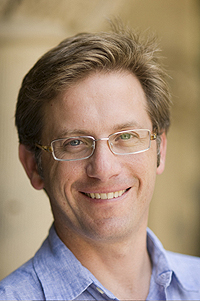 |
||
|
Members |
||||
|
Paul Attewell
|
The Other 75%: Government Policy & Mass Higher Education Seventy-five percent of America's undergraduates are non-traditional or working students. Yet research on higher education focuses the lion's share of attention on the remainder who are full time students, dependent on their parents for support. This project focuses on the role of the state in developing an institutional and policy environment that stratifies the college student population and creates the conditions that foster discontinuous enrollment, elongated time to the completion of degrees, and high levels of debt among the nontraditional majority of the country's college students. Combining statistical analyses of large data sets with in-depth interviews of nontraditional undergraduates, it develops a perspective on state policy in higher education both as a gatekeeper and as a facilitator of social mobility in American society. It reframes the typical careers of working students -- from high rates of stopping out, to frequent shifts in major or institution, and delayed time to degree -- as rational adaptations to government policies and institutional practices in a particular economic context. |
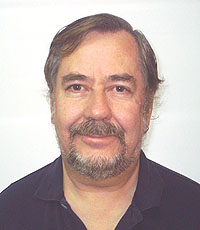 |
||
|
|
||||
|
Julia A. Clancy-Smith |
From Household to School Room to Post-Colonial State: Educating Muslim Girls in North Africa, c. 1840-1970 Educational systems in Africa and Asia are the products of colonial schooling–or of resistance to educational imperialism–and raise questions about modernity. How did colonial schooling work to promote or block modernity? How did colonial regimes address the contentious matter of women's education? How did education shape colonial states? What implications did the state-school nexus hold for nationalist struggles and post-colonial states? Analyzing the large forces associated with modernities from the viewpoint of families/households rather than top-down, state-centered perspectives yields insights into how some post-colonial states and societies rapidly became modern. This study examines education and schooling in North Africa across three periods--pre-colonial; colonial; independent--from 1830 to about 1970. The comparative question is: why did female education, especially for Muslim girls, achieve limited success in colonial Tunisia (1881-1956), and thrive in post-colonial Tunisia, yet utterly fail in French Algeria (1830-1962), and, to an extent, independent Algeria? The project focuses upon schooling for girls in colonial Tunisia and Algeria because the question of whether colonized women should receive modern education generated the most passionate polemics there--debates that were ensnared in global struggles over the meaning of empire and local conflicts over family structures, hierarchies, re |
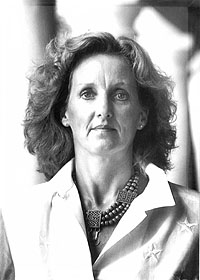 |
||
|
|
||||
|
Julie E. Cooper |
Modesty and Dignity in Modern Political Theory I study early modern political theory. I will be working on a book manuscript, Modesty and Dignity in Modern Political Theory, which surveys seventeenth and early eighteenth-century debates about modesty, humility, pride, and self-esteem. Scholars have increasingly recognized that "secularism" not only names an institutional relationship between religion and state, it also names a culture that celebrates, and tries to produce, a particular kind of individual. Documenting the ways that notorious figures like Hobbes, Spinoza, and Rousseau take up and transform theological themes of modesty, humility, and pride, I provide new resources for thinking about what secular subjectivities look like, and how they have been produced. Specifically, by highlighting early modern theorists' investment in modesty, I challenge the influential historiographical narrative that equates secularization with self-deification. In the book's first part, devoted to Hobbes and Spinoza, I challenge the dominant historiography of seventeenth-century political theory, excavating an alternative tradition that makes affirmation of vulnerability a condition of agency and power. In the book's second part, devoted to Rousseau, I examine why, in the early eighteenth century, dignity eclipses modesty within the critique of pride. |
 |
||
|
|
||||
|
Graham Finlay |
Education for Cosmopolitan Citizenship in the Republic of Ireland Graham Finlay will be using the theory of global justice to develop a strategy for cosmopolitan citizenship education in Ireland. This project will contribute to the theory and practice of citizenship education, which is mainly national in focus, and to cosmopolitan theory, since realizing cosmopolitan justice involves changing individuals’ attitudes to global inequality. |
 |
||
|
|
|
|||
|
Angel L. Harris
|
Perceptions of Opportunity and Schooling Among Adolescents Angel Harris seeks to extend the literature on racial differences in academic outcomes through a research program that focuses on youths’ perceptions about opportunities for upward socioeconomic mobility. He will examine how different modes of stratification—social class, race, and gender—shape beliefs about the opportunity structure and academic orientation. |
 |
||
|
Jeffrey R. Henig |
The Political Economy of Contracting Regimes in Urban Education The conventional form of the school district - in which the central office oversees individual schools and prescribes much of their operations - has been challenged by strategies involving for-profit and nonprofit organizations as management partners. Existing analyses have focused on administrative aspects or been informed primarily by economic theories about competition and choice. Henig's project will frame the issue more in political terms, looking at the way local governance institutions, interest group arrangements, and political culture influence the adoption, implementation, and consequences, with special attention to impacts on democratic engagement and collective learning. |
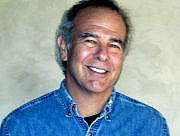 |
||
|
|
|
|||
|
Ben Kafka |
The Demon of Writing: Paperwork and the Making of Modern France This year I will be finishing a book on the history of bureaucracy in the decades surrounding the French Revolution. The book focuses on the powers and failures of paperwork - what Saint-Just called the "demon of writing." I have also started a project on the history of graphology. |
 |
||
|
|
||||
|
David Karen |
Does Democracy Matter? Compared to many other countries, the US represents an extreme in local control of public schools. As an elected school board member, I see first-hand what this democratic decentralization means in one district. How do different state-based arrangements of local control affect curriculum, student achievement, and political participation? By focusing on a carefully selected set of comparisons, this study proposes to examine a variety of local governance structures in a number of contexts in order to determine exactly what is gained– and, perhaps, lost–in this uniquely American set of arrangements.
|
 |
||
|
Peter J. Katzenstein |
American Soft Power and Foreign Policy In an effort to gain a better understanding of America's soft power and foreign policy, this project focuses on America"s multiple traditions and their engagements of multiple modernities in world politics. Both are more encompassing than the secularism of the discipline of international relations and the statism of studies of American foreign policy are ready to acknowledge. |
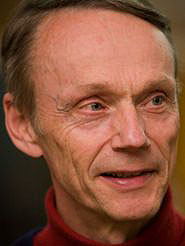 |
||
|
|
||||
|
Dalenda Largueche |
Behind the Veil of History, Muslim Women in Action Our research aims to bring a new historical light on Tunisian women's life in the eighteenth-nineteenth centuries. As an exploration into the forgotten history, it delves deeply through traces left by indigenous women, according to various material data from the daily life. Using their property, their knowledge and their hands, Muslim women in that context had been widely present in the life of their city and its history.
|
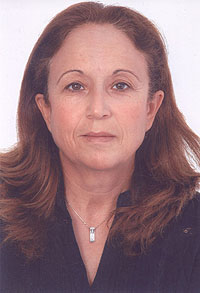 |
||
|
|
||||
|
Humberto Llavador |
Global Justice in a Warming Planet During my stay at the IAS, I will focus on the study of welfare sustainability in the presence of global warming. The approach, logically prior to the design of the best system of tradable permits or price incentives, aims at highlighting the ethical issues of intertemporal and intratemporal justice, and it requires both the specifying welfare criteria and the empirically estimating of possible paths of the economy.
|
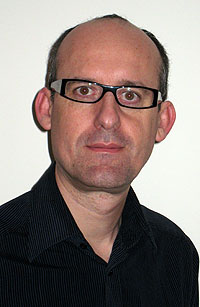 |
||
|
|
|
|||
|
Patrick McGuinn |
Negotiated Settlement: Policy Feedback and the Implementation and Reauthorization of No Child Left Behind This project analyzes how the No Child Left Behind Act has reconfigured educational politics and practice in the US. It will examine ongoing efforts at both the state and federal level to restructure administrative institutions and relationships, create new political alliances, and re-frame public debates over school reform, and assess their impact on the Congressional debate over NCLB’s re-authorization. |
 |
||
|
|
||||
|
Joel S. Migdal |
Creating the Public in the United States My interests include theories of state-society relations and Middle East politics, especially those involving Palestinians and Israelis. I will be working on an historical book about the creation of the public in the US, once it had become, in the nineteenth century, an urbanized “society of strangers.” I look at the rules for everyday interaction and ask how and why they became cross-cutting, who benefited from them, and who was disadvantaged by them. The book will pay particular attention to the Civil War and World War II in redefining the American public. |
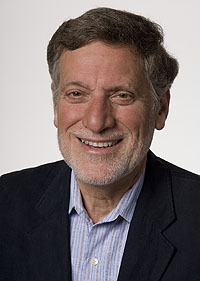 |
||
|
|
||||
|
Seth Moglen |
Bethlehem: American Utopia, American Tragedy Seth Moglen will be working on a new book that traces the development of Bethlehem, Pennsylvania from 18th-century utopian religious community to industrial steel town to post-industrial casino development. The book explores the structures of power and the democratic aspirations that have shaped this iconic American city over 250 years. |
 |
||
|
|
||||
|
Matthew J. Nelson |
Religious Education and the Politics of Pluralism in Pakistan I am interested in the relationship between religious education and citizenship in Pakistan. I am particularly interested in the circumstances that might be expected to generate a "religious" appreciation for "religious and sectarian diversity" in the context of local schools and madrasas. |
 |
||
|
|
||||
|
Mae M. Ngai |
Yellow and Gold: The Chinese Mining Diaspora, 1850-1910 My project examines Chinese gold miners in the North American West, Australia, and South Africa (1850-1910). My intention is to think about exploitable-extractive resources and diasporic labor in the development of Anglo-American colonial-settler societies and in the world-capitalist economy in the late-nineteenth century. I compare the social organization and experience of Chinese miners across Anglo-American settler colonies; and examine the relationship between Chinese and European labor and the circulation of racial discourses in the making of polities that were at once democratic and exclusionary. I also explore the colonial dimension of the international monetary system and the gold standard in the late-nineteenth century. |
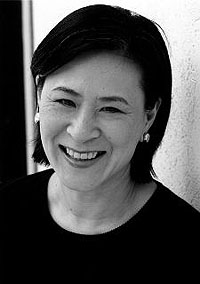 |
||
|
|
||||
|
Jason Schnittker |
The Sociology and Genetics of Disease in Human Populations The "genetic revolution" provides an unprecedented opportunity to enhance our understanding of disease, but this recent revolution needs to be integrated into our mature understanding of the social causes of illness. My project will develop principles for evaluating genetic causes in the context of pervasive environmental influences, especially those stemming from education.
|
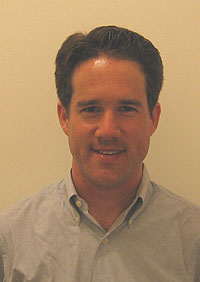 |
||
|
|
||||
|
Anna Marie Smith |
Distributive Rights and New York Constitutional Law: The State Education Funding Lawsuits My project is a normative exploration of the education adequacy lawsuit in New York. Should the right to education be justiciable? How does the normative argument in favor of the court's enforcement of the right to education implicate difficult questions relating to intergenerational justice? What are the potential pitfalls of the race-neutral character of this social justice strategy? |
 |
||
|
|
||||
|
Carola M. Suárez-Orozco |
Immigration, Schools and the State: Policy Misalignments and their Consequences for Immigrant Youth Over the last twenty years, immigration to the United States grew at a brisk pace. Approximately 70 million people living in the United States are either immigrants (foreign-born) or the (U.S. born) children of immigrants. This massive immigration wave would have ideally taken place within a coherent policy framework synchronized to ease the transition of new arrivals to education, the labor market, and the practice of citizenship. Instead, the United States is facing a gathering storm. The current policy architecture is at once misaligned with the realities of global migration and plagued by unclear, contradictory, and unrealistic objectives. The result is an immigration system now largely irrelevant to any rational labor market objectives, the vicissitudes of language and education policies, and requirements of citizenship and social cohesion in the 21st Century. The proposed joint study (with Marcelo Suárez-Orozco) shall deploy data from the LISA Study of the Harvard Immigration Projects, the largest study ever funded in the history of the NSF Cultural Anthropology division, as well as data from two other funded field projects, to develop a conceptual framework for understanding various aspects of this perfect storm on the lived experiences of immigrant children and youth with a focus on schools. |
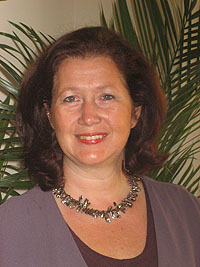 |
||
|
|
||||
|
Marcelo M. Suárez-Orozco |
Immigration, Schools and the State: Policy Misalignments and their Consequences for Immigrant Youth Over the last twenty years, immigration to the United States grew at a brisk pace. Approximately 70 million people living in the United States are either immigrants (foreign-born) or the (U.S. born) children of immigrants. This massive immigration wave would have ideally taken place within a coherent policy framework synchronized to ease the transition of new arrivals to education, the labor market, and the practice of citizenship. Instead, the United States is facing a gathering storm. The current policy architecture is at once misaligned with the realities of global migration and plagued by unclear, contradictory, and unrealistic objectives. The result is an immigration system now largely irrelevant to any rational labor market objectives, the vicissitudes of language and education policies, and requirements of citizenship and social cohesion in the 21st Century. The proposed joint study (with Carola Suárez-Orozco) shall deploy data from the LISA Study of the Harvard Immigration Projects, the largest study ever funded in the history of the NSF Cultural Anthropology division, as well as data from two other funded field projects, to develop a conceptual framework for understanding various aspects of this perfect storm on the lived experiences of immigrant children and youth with a focus on schools. |
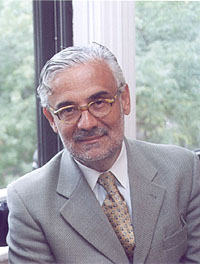 |
||
|
|
||||
|
Ian P. Wei |
Policy-Making and Decision-Making in Higher Education Ian P. Wei works on the identity, status and roles of intellectuals in medieval Europe, with particular focus on the University of Paris. He is also looking at policy-making and decision-making in contemporary universities. Key themes include: claims for legitimacy; ethical responsibilities for students; and academic engagement with policy-making. |
 |
||
|
Anat Zohar |
From Rote Learning to Higher Order Thinking: Implementing a National Educational Policy This project will examine a national-scale pedagogical transformation from an emphasis on rote learning toward an emphasis on deep understanding and higher order thinking. The project will analyze several converging factors through the lens of the Israeli school system: political, global, ideological, as well as current theories in the domain of learning and instruction, investigating how what actually takes place in schools is affected by the interplay of these factors. Examples of specific topics will include: The relationships among the paradigm of "Learning to Think," school autonomy and the need for accountability and standards; Learning to think and Civic Education; Ways to achieve sustainable educational change in the context of "Learning to think;" and Global effects on national trends - tracing the effects of the PISA and TIMSS international tests on the Israeli national curricula in relation to literacy and higher order thinking. |
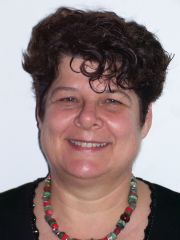 |
||
|
Visitors |
||||
|
James Doyle (Term 2) |
Plato's Gorgias Professor Doyle will be working on a book on Plato's Gorgias. This will give an analysis of the main arguments of the dialogue, and an account of the use to which Plato puts the dialogue form, as leveling an implicit critique of Socrates' conception of philo-sophical method and his associated doctrine of "intellectualism."
|
 |
||
|
|
||||
|
Crystal N. Feimster (Term 2) |
Sexual Warfare: Rape and the American Civil War |
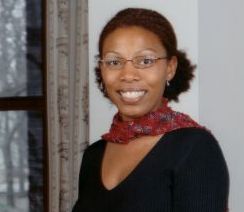 |
||
|
Robin Marantz Henig |
Bottling Normal: How America Discovered Valium and Redefined Mental Health I'll be spending the year doing the journalism work I normally do as a contributing writer for The New York Times Magazine, writing long feature articles about science and medicine. In addition, I'll be working on a project for which I was awarded a Guggenheim Foundation Fellowship for 2009-2010. My Guggenheim project is called "Bottling Normal: How America Discovered Valium and Redefined Mental Health." In it I propose to describe how Valium and other so-called minor tranquilizers were developed, marketed, and introduced into medical practice, and analyze Valium as the first in a long line of psychoactive drugs that have caused us to redefine what it means to be normal. I think of it as a sort of "Listening to Pre-Prozac." |
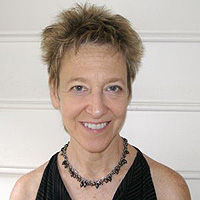 |
||
|
Myung-Koo Kang (Term 2) |
Two Diverging Paths of Financial Globalization: A Comparative Study on Japan and South Korea I will work on my book manuscript that compares the sequence, pacing, and institutional consequences of the financial restructuring in Japan and South Korea in response to financial globalization from the early 1980s. It explores why emerging outcomes are so different, despite the fact that both countries have consolidated a bank-centered financial system in the past and taken very policy measures to cope with financial globalization. It will examine the pattern of state intervention in the course of financial liberalization, which led to systemic banking crises in the mid-1990s in both countries, and the measures taken after the crises. |
 |
||
|
Mary Fainsod Katzenstein |
How Liberal Ideas Frame Incarceration Policies in the US This year, I will be working on a book about how liberal ideas frame incarceration policies in the US. Liberal principles of "responsibility" and "choice" constitute the two-sided ideological coinage of the post 1970s penal realm. DARE campaigns in the schools, cognitive-restructuring programs in prisons, child support obligations of incarcerated fathers, sentencing policies related to felony murder, the collateral consequences that cause felony disenfranchisement, and post-prison rehabilitation and reentry projects are all suffused in the vocabulary of choice-making and responsible conduct. The book project explores how activists and policy makers deploy liberal ideas to frame the policies of contemporary incarceration. |
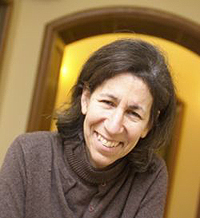 |
||
|
JoAnne Mancini
|
Destructive Creation: Instrumental Aesthetics, Geopolitical Relations, and the American-Occupied Philippines From the earliest stages of the war with Spain that set the stage for the American occupation of the Philippines in 1898, through the end of that occupation following the Second World War, U.S. military and political practice in the Philippines was supported and sustained through the creation and manipulation of a visual culture distinctly suited to that occupation. Yet, despite scholarship on certain limited questions, the relationship between aesthetic practices and political or military processes in the American-occupied Philippines has received little synthetic attention. The aim of ‘Destructive Creation: Instrumental Aesthetics, Geopolitical Relations, and the American-Occupied Philippines’ is thus to recognise and analyse the many aesthetic processes including the creation, destruction, theft, reproduction, recontextualisation, and transformation of images, objects, structures and landscapes that permeated American military and political practice during this turbulent period. |
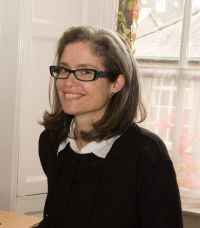 |
||
|
|
|
|||
|
Niels Reeh |
The Teaching of Religion in the Danish Elementary Schools from 1700 Until Today I explore the state religious politics of the Danish state in the elementary schools from 1700 until today. In order to account for the current re-politization of religion, a fission-perspective on the state is suggested. This implies a re-interpretation of the secularization narrative and a corrective of the secularization theories. |
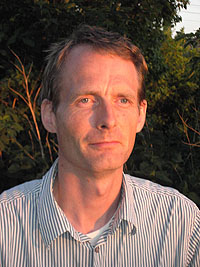 |
||
|
Richard Rothstein |
Defining Federal and State Roles in an Accountability System for Public Education and its Surrounding Institutions of Youth Development -- Three Facets of the Problem Requiring Exploration Schools accountability policies using narrow test-based measures have failed, but the need for public accountability remains. Extending previous work on the design of a workable accountability system, Rothstein will develop proposals for how measures of behavioral outcomes, such as good citizenship, can be incorporated into educational accountability policy. |
 |
||
|
|
||||
|
Noam Zohar |
The Jewish Political Tradition : Politics in History I propose to describe central aspects of the political thought of classical Rabbinic Judaism, through an exploration of Mishnah tractate Nezikin (=the "Three Gates"). This will be a study of the text's redaction, attending to the history of its construction out of previous materials, but mainly emphasizing the significance of the final content and literary form. The goal is an exposition of the themes and values expressed through the literary art of redaction - in this context, ideas pertaining to social cohesion and to the mutual obligations and responsibilities of neighbors and stakeholders in the shared social space. The thirty chapters of tractate Nezikin discuss the responsibilities of individuals to prevent harm to others in shared public space and in neighboring private domains; delineation of property rights, concepts of ownership and obligations regarding fair trade, contracts, and avoiding exploitation; the rudiments of communal government, conceived here as an extension of the neighborhood; and the retention and transfer of property within the family across generations. By exploring the formation of the tractate as a literary whole comprising all of the above (and more), I hope to explicate the implied interrelations among these components of social coexistence and thus to produce an in-depth account of central elements of Rabbinic political thought. |
 |
||
|
Research Assistant |
||||
|
Yuval Jobani |
Democracy, Secularization and the Jewish Political Tradition The Jewish Political Tradition project, chaired by Michael Walzer, sheds light on the little-known and unexplored Jewish tradition of political thinking and writing, and invites the reader to re-evaluate this tradition from the viewpoint of modern political-philosophical discourse. In addition I study models of secular Jewish culture and religious models and paradigms that would foster the preservation and cultivation of the democratic ethos in a society where religion plays a central role. |
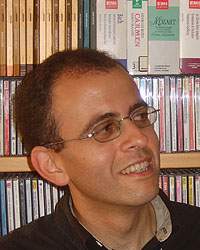 |
||
|
|